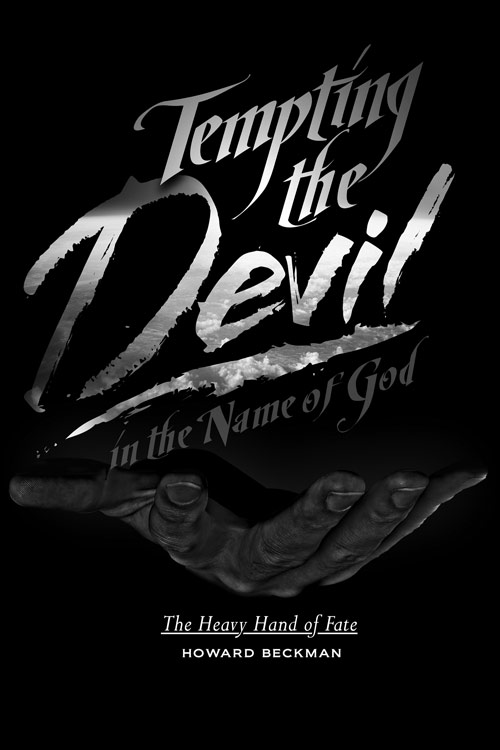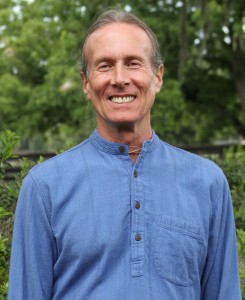Howard Beckman has been many things, but boring is not one of them. Yogi, gemologist, father, Ayurvedic expert, astronomical guru, husband, heroin addict, international drug trafficker. Survivor of both the Thai and American penal system. Writer, motivational speaker. Animal lover. Friend. These are all descriptors that can be employed to describe him, and yet none of them are singularly able to define him.
His memoir, Tempting the Devil in the Name of God, illuminates the story of a man desperately trying to navigate the murky waters of life. Through trials, tribulations, and a steadfast commitment to survival, Beckman imparts his unique perspective on what he calls “the heavy hand of fate.” Beckman’s writing, more than anything, is conversational. While his turn of phrase can be repetitive, there is something in the vernacular he draws on to describe his life’s journey that makes him automatically familiar. This is clearly the way he would speak if he was sitting across from you, drinking a cup of tea, talking about his time in Hawaii or his years-long battle with heroin. He creates a meaningful dialogue with the reader, and though you don’t have the opportunity to respond, the intimate details he provides clearly show that this is a man attempting to bare his soul.
Beckman’s story begins in Pennsylvania, where at 16 he develops a relationship with his first wife, spirituality, and the Hare Krishna movement via his guru, Bhaktivedanta Swami Prabhupada. The texts and teachings of Prabhupada, the founder of the Hare Krishna movement, takes Beckman west, to Los Angeles, where he immerses himself more deeply into the Hare Krishna community. After some time in LA, an opportunity arose to help open up a temple in Honolulu, and Beckman and his wife jumped at the chance to live in paradise practicing their faith. Beckman dabbles with Hawaiian marijuana, which leads him to return to his teenage dalliance with heroin, and a landslide unfolds: using leads to dealing, which leads to trafficking, which leads to Thailand, which leads to prison.
Chronologically, Beckman’s path becomes difficult to follow as he focuses mainly on his prime years of drug abuse and trafficking, and specifically on one romantic relationship that the reader later gleans is pertinent only in relation to those specific drug years. I was dismayed at a later point of the book where he glosses over a relationship in his post-incarceration phase in California where he becomes a de-facto father to this girlfriend’s son. The book also takes a bit of a turn at the end, when it shifts to Beckman’s current life in Arizona and focuses on his work with animals, and even encourages the reader’s monetary support. I did find the storytelling exciting, but I’d be lying if I didn’t admit I found myself lost in the book’s timeline more than once.
Beckman’s closing call to action ultimately clouds the focus of the reader, though he does repeatedly emphasize his thesis throughout the book, which is to share his story on his drug abuse and the ramifications his actions had on those around him. Yet even a few weeks after I finished this book, I found myself pondering just what I was supposed to have learned from this often harrowing tale. Is his main priority to widen and embolden the conversation of the current state of the American war on drugs? Is it to highlight the institutional pros and cons of the Hare Krishna movement, which Beckman at first glorifies and then vilifies with the evolution of the organization? Is it to delve deeper into the art of attention, meditation and yoga? Is it to draw awareness to animal abuse with the overarching goal to help them by beefing up his non-profit organization? The mind reels.
While all of these topics are deserving of books in their own right, I puzzled at what Beckman’s goal take away was. Perhaps his views on his first hand experience with each pillar of his story is meant to reach a wider audience, artfully stitching together a breadth of topics to discuss while providing a primary source’s account. Perhaps he is merely putting one foot in front of the other, and guiding us along his journey without prioritizing his love of yoga over his (former) love of heroin. Maybe he’s just spit balling.
Wherever his goals lie, the one thing I am sure of is his story is interesting and thought provoking, a book that is easier to delve into and tear through than it is to be believed. And yet, by the time I completed this book, I was a believer. A satisfying ending was handed to me on a silver platter, tying up all loose ends, and done in that familiar, conversational tone that makes you keep turning pages. The ebbs and flows of the narrative, coupled with what feels like a true commitment to honesty and living his truth, made me happy I had the opportunity to read this book. I am only glad Beckman chose to wait until this moment in his life to share his story, as his story is inspirational and ends on a hopeful note, encouraging education and outreach programs for addicts, and expresses the emotional journey of a man with a story to tell.
Twisted Talk: Are you a fan of memoirs? What’s the last one you read? Discuss below!










